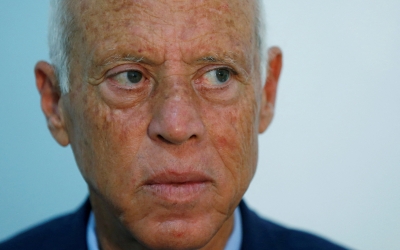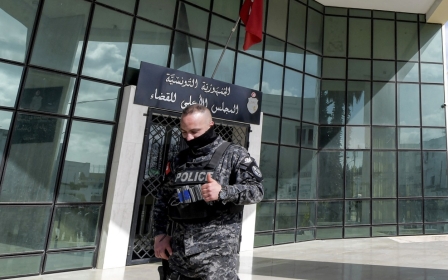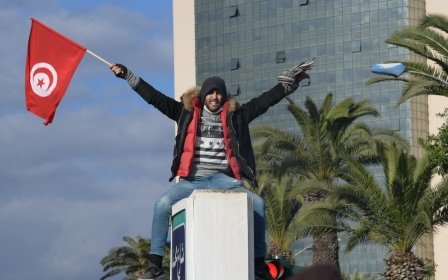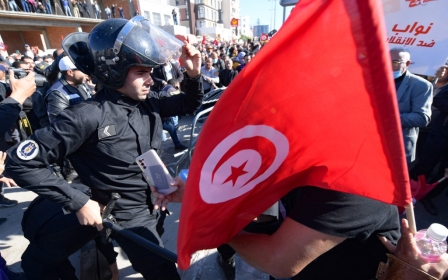Tunisia: Secret detentions widespread under state of emergency
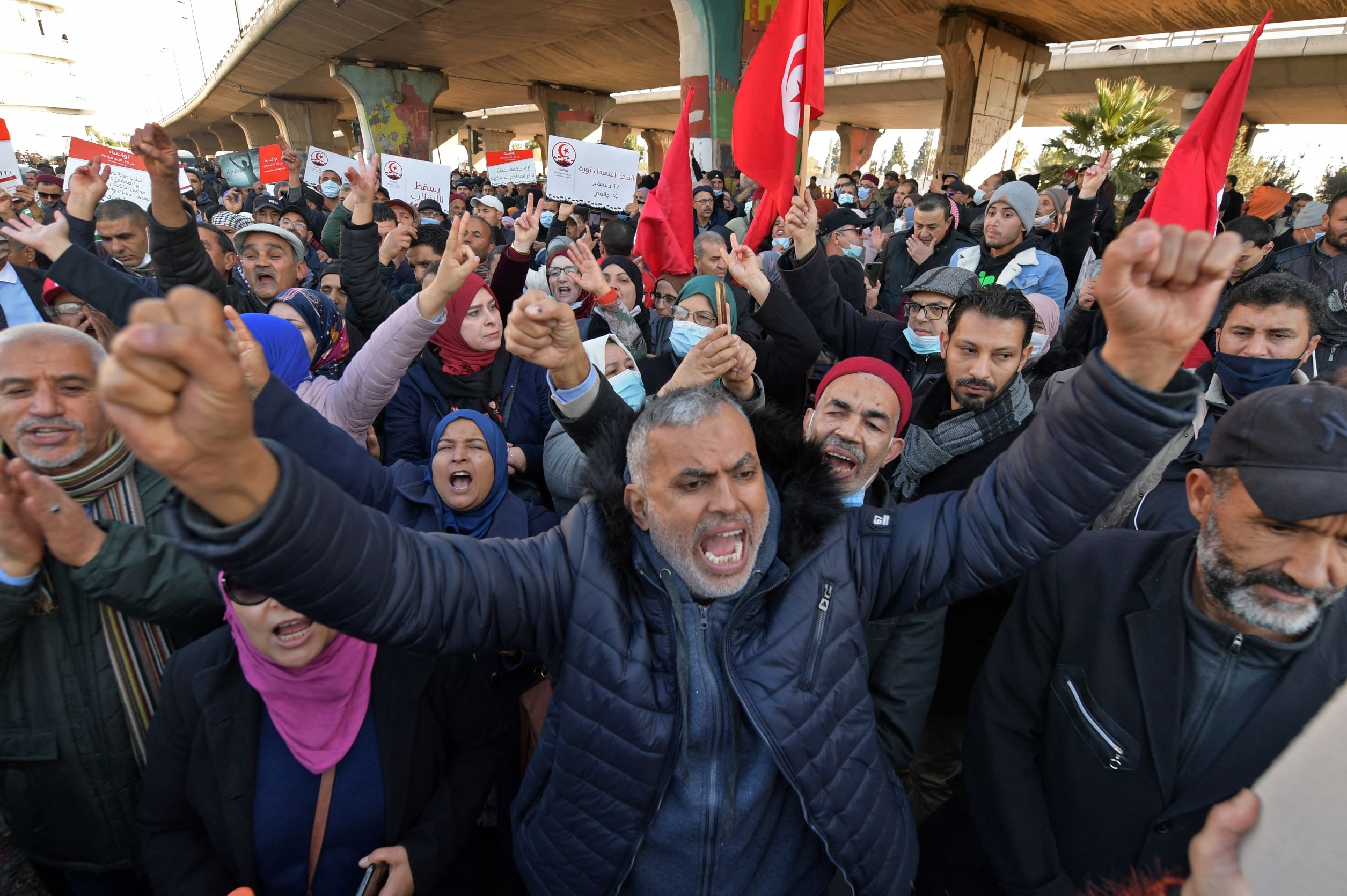
Secret detentions have become widespread in Tunisia under the state of emergency first imposed in 2015, according to a new report.
Although the use of "assigned residences" as the measures are called have been used for years in the country, their use has escalated since President Kais Saied seized executive powers for himself in July 2021.
Human Rights Watch's report highlighted the case of a former interior ministry employee, Fathi Beld, and former justice minister Noureddine Bhiri who were both arrested on 31 January near their homes.
Bhiri is currently in hospital because of a health condition, but Beld's whereabouts are unknown, although his lawyer told HRW that it was somewhere near the town of Borj al-Amri, in the governorate of Manouba.
According to the wife of Bhiri, who is also vice president of the largest parliamentary party Ennahda, before being taken to hospital he was kept in an “abandoned” and “almost empty” building in Bizerte governorate.
Dozens of people have had assigned residences imposed on them since July, a measure which HRW said was "used abusively and without judicial oversight".
“Failure to reveal a person’s place of detention is an alarming step toward a lawless state and is in no way justified by the state of emergency that has repeatedly been extended since 2015,” said Salsabil Chellali, Tunisia office director at Human Rights Watch.
“The authorities should immediately put an end to these arbitrary detentions or use the legal, fully transparent route to allow for a judicial challenge.”
Saied's power grab in July saw him suspend parliament and assume executive powers in what he claims was a bid to tackle corruption, unemployment and soaring Covid-19 rates.
His opponents, however, accused him of carrying out a coup and undermining democracy in what had hitherto been referred to as the main success story of the 2011 Arab Spring.
On Sunday, the president dissolved the Supreme Judicial Council, the body that oversees judicial independence.
Saied accused the body - which is responsible for appointing judges - of corruption and delaying politically sensitive investigations, such as those into the assassinations of two left-wing leaders in 2013.
Supreme Judicial Council head Youssef Bouzakher denounced the move as "illegal."
Middle East Eye propose une couverture et une analyse indépendantes et incomparables du Moyen-Orient, de l’Afrique du Nord et d’autres régions du monde. Pour en savoir plus sur la reprise de ce contenu et les frais qui s’appliquent, veuillez remplir ce formulaire [en anglais]. Pour en savoir plus sur MEE, cliquez ici [en anglais].


